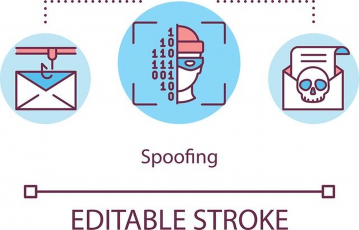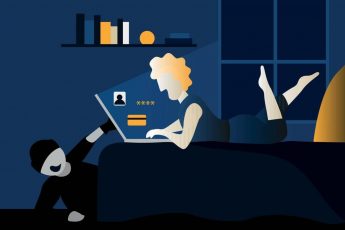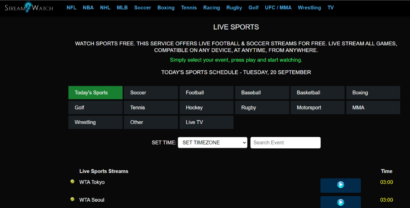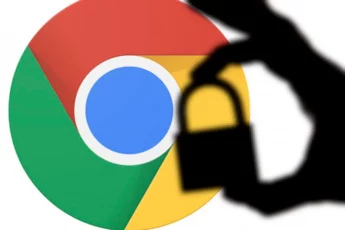Everyone now wants top security when it comes to their privacy. You may not be a political figure or a celebrity, but that does not mean you will never become the victim of constant government surveillance.
Many people are curious about the ‘eyes‘ that continuously watch over us. The most well-known eyes are within ‘5, 9, and 14 Eyes.’ You may be wondering what are or who are the Five Eyes, Nine Eyes, and Fourteen Eyes. They are the world’s most well-known countries forming dedicated surveillance alliances.
When choosing the type of security, you must watch out for the Five Eyes, Nine Eyes, and Fourteen Eyes, especially while purchasing VPNs and other privacy enhancement tools.
Your internet service provider (ISP) may be linked to this surveillance alliance. They may even be handing your personal data to them. Your IP address is the simplest thing to track down by anyone, but it can be trouble for you in the hands of the wrong people.
These alliances formally started after World War II. An international surveillance alliance was created among a few countries, and they have been building networks to spy on people for years now.
This article will teach you all you need to know about the Five Eyes, Nine Eyes, and Fourteen Eyes. That includes every country involved, what they do, and how you can stop them from getting your personal data.
What is 5 Eyes alliance?
The Five Eyes (abbreviated as FVEY) refers to the countries constituting the surveillance alliance, which are:
- The United States of America (USA)
- The United Kingdom (UK)
- New Zealand
- Canada
- Australia
Understanding 5 Eyes concept
The Five Eyes share all the information and activities of their citizens. So it does not matter how big of a figure you may be in the public’s eye; your data is theirs in the Five Eyes.

There are other organizations within the Five Eyes of each country. For example, in the USA, the CIA, FBI, NSA, and DIA collect information and share it among the governments.
The history of the Five Eyes dates back to World War II and the USA-UK agreement (explained below). In short, it was an agreement that ensured all the countries would share every bit of information they received.
The power of the Five Eyes government can be noted by the United Kingdom’s Investigatory Powers Act of 2016. This Act allowed the government to record every text message and browsing history of people. This data would be stored and kept available for the government for two years and can be used without a warrant.
There have been other large agencies that have helped the five eyes claim people’s data. These agencies are a part of what is known as the PRISM program. In 2017, some ISPs were allowed to record every user’s activities and were given legal permission to sell them to other third parties. No one could reject this program legally.
The Five Eyes can force different large-scale companies into handing over customer data. Many people have tried to reveal the activities of the Five Eyes. However, the public still chooses to remain blind and unaware of what is being done with their private online information and how government agencies can exploit it.
Your favorite social media platform may very well be on this game of selling your private data to the government. Facebook and Google are well-known platforms in this case. However, the Five Eyes have global surveillance almost everywhere.
UK-USA Agreement

This agreement was first put forward in 1943 and was known as the British-US Communication Intelligence Agreement (BRUSA). It was connected with the:
- Signal intercept networks of the UK
- Government Communications Headquarters (GCHQ)
- The US National Security Agency (NSA).
It was an agreement for cooperation between the five countries regarding information sharing. In short, it was known as the ‘Five Eyes.’
The information-sharing was done through the STONEGHOST network, and it is through this network that people believe it holds the western world’s top secrets. Besides the UK-USA agreement laying down the rules for intelligence sharing, it was an agreement that created a special relationship between just the UK and the USA.
Many governments were unaware of its existence until it was disclosed to the public in 2005. By 2010 the full text of the agreement was revealed to the public and can easily be found online. It is said to be the most significant text in history.
Relations with other countries
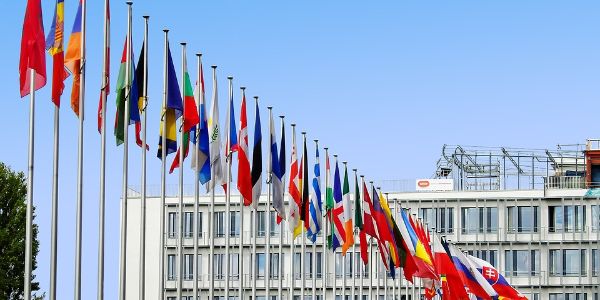
It won’t surprise anyone that the Five Eyes have been involved with more countries than those within their group. There are said to be other countries also involved in the Five Eyes but are not officially part of it. These countries include:
- South Korea
- Japan
- Singapore
- Israel
Five Eyes and China
Undoubtedly, China is a powerhouse, and many countries fear what it may end up doing. That is why the Five Eyes and its third parties are very much against China.
The distrust against China is so high that all of the Five Eyes have something or the other against their well-known phone brand, Huawei. Five Eyes and Huawei have had issues for a while now, especially since Five Eyes believe that through these mobiles, China may try to break into their security systems.
Anyone owning a phone from Huawei may not get the full benefits of a 5G network in most Five Eyes countries. For example, in Australia, Huawei products have been banned from accessing their 5G network. The USA has even prohibited the brand from its government network. That was then followed by New Zealand as well. While Canada still seems to stay neutral in this matter by not doing anything.
However, China is not the only country on the Five Eyes radar. Russia and North Korea, too, seem to have some issues with them. Moreover, both countries are well known for their nuclear power. Thus, it’s not surprising that they are scrutinized.
India also wants to create relations with the Five Eyes. However, it does not want to play the younger brother’s role within Five Eyes. The Five Eyes and India have a more complicated relationship as the latter seems to plan on keeping good relations with the US, China, and Russia.
5 Eyes surveillance systems
Five eyes intelligence alliance doesn’t rely on a single surveillance strategy. Instead, they have implemented numerous surveillance systems that separately track users, ensuring comprehensive data collection. While not all of them are precisely disclosed, the following are some known systems.
- ECHELON: You may think of it as one of the oldest surveillance systems dating back to the Cold War era. It was then formally established in 1971 to intercept military and diplomatic communications between the then Soviet Union and the Eastern countries. Following its success, the program continues to expand its capabilities to include online tracking.
- PRISM: It’s a new surveillance system working since 2007. The PRISM program typically focuses on collecting data from the tech giants, such as Google, Yahoo, Facebook, and Microsoft.
- XKeyScore: This one is a newer addition to the existing surveillance programs. XKeyScore (or XKS) typically traces back to the NSA. It performs real-time collection and monitoring across the global internet system. Edward Snowden dubs the system a “one-stop-shop for access” as it exhibits almost unlimited and unrestricted surveillance capabilities.
What are the 9 Eyes?
The Nine Eyes is similar to the Five Eyes, with an addition of four new countries, making up to 9 countries. The members in the nine eyes include:
- The Five Eyes
- Norway
- Netherlands
- France
- Denmark
These countries were revealed to be a part of the 5 Eyes global surveillance. However, they are seen as a mere extension of the Five Eyes alliance. By expanding their group, the Five Eyes have a greater chance of getting cooperation from other countries and additional data from their members.
These four additional countries do not have the same amount of access or high-level authority as the Five Eyes members do. But they do get access to data and information from other countries, which is still in their favor.
The goal is to share information and data, including mass surveillance data.
What is 14 Eyes alliance?
The Fourteen Eyes are also similar to the Five Eyes and Nine Eyes, with further addition of countries. Countries within the Fourteen Eyes include:
- The Five and Nine Eyes
- Germany
- Belgium
- Italy
- Sweden
- Spain
The Five Eyes still try to maintain a high power amongst these groups of countries by focusing on surveillance collection and sharing of data amongst the nations. Most of their third parties’ headquarters are located within the Five Eyes or their unofficial group members.
The relationship between the Fourteen Eyes and Five Eyes is even less close than the Nine Eyes. Nevertheless, they still benefit from gaining access to information, recourses, and intelligence, which they might not have usually had.
The official name of these groups of countries is SIGINT Seniors Europe (SSEUR). The primary purpose being exchanging military signals intelligence among their members.
What data do these alliances collect and share?
All countries within the 14-Eyes alliance claim to surveil their citizens for national security. That is true to some extent, given how these countries frequently foil terror threats by proactive tracking. Also, sharing the details with other countries makes sense if the intention is to prevent terrorist activities across borders.
But of course, such vigilance clearly shows the deep tracking practices the governments employ on every citizen. While it’s difficult to list out everything the authorities may log. But to sum it up, we can say ‘everything‘ – more precisely, ‘everything online.’
Collecting such data requires deep control over the service providers. Thus, those countries have implemented mandatory data logging laws for key entities serving the public. Two of these include telecom operators and internet service providers (ISPs).
So now, it’s clear that governments track your internet search history, browsing practices, phone calls, video chats, messages, browsing data, and the details of the devices you use.
Can I avoid 14-Eyes tracking?
Although you cannot achieve fool-proof security against the 14-eyes surveillance, you can largely escape it (at least, the unwanted tracking things) by using privacy tools.
The most important tool here is the VPN. Since VPNs mask your IP address and encrypt your data in transit, your ISPs and other tracking authorities find it challenging to log your exact online activities.
And it gets trickier when you secure all your communication means by using dedicated tools like secure messaging apps, secure email services, anti-trackers and adblockers, and ensuring IP leak protection.
But all these tools only become effective when you first protect your online activities via a robust VPN. And that’s where you need to know more since you cannot use just any random VPN here.
Below are the best VPNs outside 14 eyes’ sight so that you may feel safe and secure while you browse:
- NordVPN
- ExpressVPN
- Surfshark
- PerfectPrivacy
- TrustZone
VPNs located in 5, 9, and 14 Eyes countries
Which VPN to trust can be tricky business. Knowing who may work with the 5, 9, and 14 Eyes is hard. There are thousands of VPNs available online. Some you may have heard of, while others you have never seen.
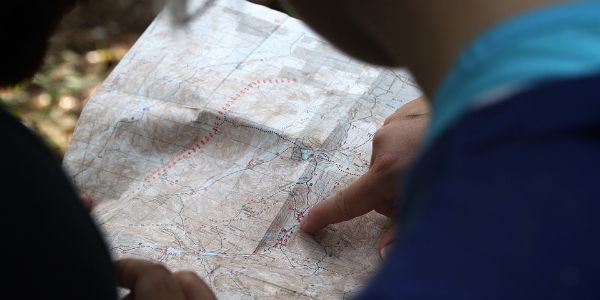
However, you would be shocked to know how many VPNs are involved with the 5, 9, and 14 Eyes. Many VPNs are located within these countries as well. Just because they are located within the country does not mean everyone is passing your data to the government.
When you decide to purchase a VPN, look into the following things:
- Fast connection (99% uptime)
- No data logging of any sort
- DNS and IP must be protected
- AES encryption
- Several servers
- An automatic kill switch
Here’s a small list of VPNs located within and outside the 14 Eyes. Look into them wisely, as they will be your protectors from corruption:
| VPN name | Country |
| AceVPN | USA |
| ActiVPN | France |
| Blockless | Canada |
| DefenceVPN | Barbados |
| IVPN | Gibraltar |
| LiquidVPN | USA |
| ProXPN | Netherlands |
| PRQ | Sweden |
| TorVPN | UK |
| TunnelBear | Canada |
| Zenmate | Germany |
Trust
You might do your best research when choosing a VPN, but you may likely end up missing a few points here and there when looking into them.
Remember, every company can claim they do not do a certain thing. But, they very well may be doing it. For example, you may choose a VPN because it says it does not back up your data, but this can easily be a lie. Nonetheless, you will have to trust one or the other.
VPN is essential for your data security as the government has advanced companies backing them up when tracking you and getting your information.
Security
The 5 Eyes, 9 Eyes, and 14 Eyes have their own “security” measures that they take care of regarding VPNs. Unfortunately, these security measures can be a massive blow for many VPN users that want to use a secure VPN where their data isn’t provided to the government 24/7.
VPNs use encryption to prevent data leaks to other people. However, there have been several cyberstalking cases due to the lack of proper VPN measures.
What is a VPN jurisdiction?
Every country has its laws, which means they have its own jurisdiction regarding almost anything. The same goes for VPNs. Some countries ban VPNs, making them illegal, while others only allow a few service providers.
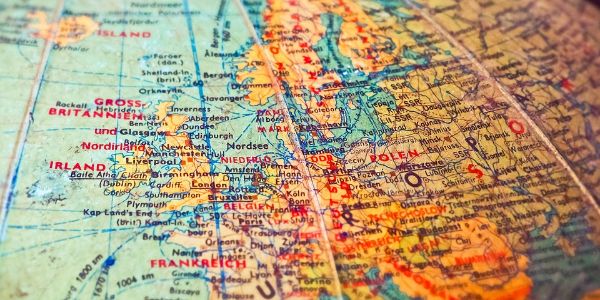
Access to VPNs within your country depends on several policies, laws, and regulations that your government puts forward. Every country can decide to allow a specific VPN or ban it whenever they like.
The only way you can dodge the bullet of a strict country policy against VPNs is to move to one that doesn’t have the same laws. However, if you look at it, this may not be the best move.
These few VPNs may very well be workers under the government trying to gain access to your data. Below is a list of the five eyes countries’ VPN policies:
| Country | Policy |
| Australia | VPNs are legal in Australia. However, any data that passes through the VPN or is stored by them can be accessed by the government. |
| USA | VPNs are legal in the USA. However, although the USA is one of the countries that preach about human rights, it still has several controversies about monitoring user data through ISP. |
| The UK | VPNs are legal in the UK. However, even though they are legal, they may still be subject to policies and laws put on ISPs. |
| New Zealand | VPNs are legal in New Zealand. However, whatever you do on it must also be permitted. That is because the government may very well have access to your data if it is needed. |
| Canada | VPNs are legal in Canada. Besides having strict policies relating to data retention and banning certain websites, Canada focuses its intelligence agencies on sharing data with other nations. |
Privacy Services
To stay away from the Eyes’ sight, you must learn about the different privacy services on the internet. There are several ways to secure a safe line and browse without worrying.

These privacy services include tools such as VPNs, Search Engines, and Secure Emails. All these tools can become an essential part of your privacy security.
You may not know this, but even Microsoft, Google, Yahoo, and Apple work with the 14 Eyes. Thus, you should look into getting a new operating system as well. You can try using Linux as an alternative operating system.
Secure Search Engines

Google, Yahoo, Bing, and many other search engines keep a record of your private information, such as:
- IP address
- Unique identifier
- The search terms you use
They use several data collection tools and share your data with other third parties. That means your privacy has been abused for so long without your knowledge. Google is the guiltiest one of all since it is at the top of its users’ data collection.
Sadly, there is no way to stop these search engines from collecting your data if you keep using them. However, you can protect your privacy if you change your search engine to a private search engine.
Private search engines don’t look into your personal information, nor do they track or share it. Keep in mind though VPNs are still secure to use. However, your security increases further if you combine the use of both private search engines with VPNs.
Below are some of the best search engines to use for your security:
- StartPage
- Qwant
- Searx
- Disconnect Search
- DuckDuckGo
Some of these search engines may save some of your data, but they do not use it for personal use or give it to any other third party.
Secure Email Services
Other than using secure search engines, it is also essential for you to change your email. That is because your government can easily access your email, especially since the most common ones used are Gmail and Yahoo mail, which are both parts of Google and Yahoo.
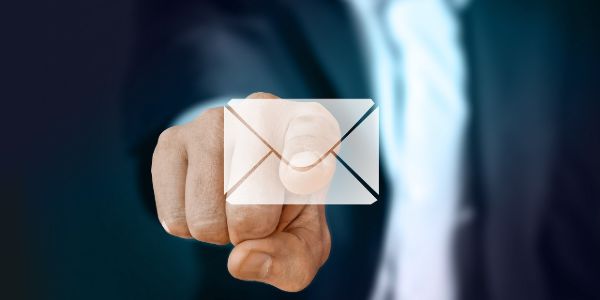
As discussed before, Google and Yahoo work with Fourteen Eyes. Thus, your information is readily provided to the government whenever they need it.
A secure email service is crucial as your email is something only you should have access to and no one else. Your private matters are connected to this service and should not be violated by the government.
Below are some of the factors you should consider when trying to pick a secure email:
- Jurisdiction
- PGP support
- Import features
- Email apps
- Encryption
- Privacy
- Security
- Features
The goal of private email is to keep your other personal data secure. Thus, you must look into the following emails to invest in for future use:
- Tutanota
- ProtonMail
- Mailbox.org
- Posteo
- Mailfence
- Runbox
- CounterMail
- CTemplar
- KolabNow
- Soverin
Best VPNs to protect your privacy
Thousands of VPNs are available online, but only a few are worth looking into. Most VPNs are either not secure enough or work with third parties by sharing your personal information.
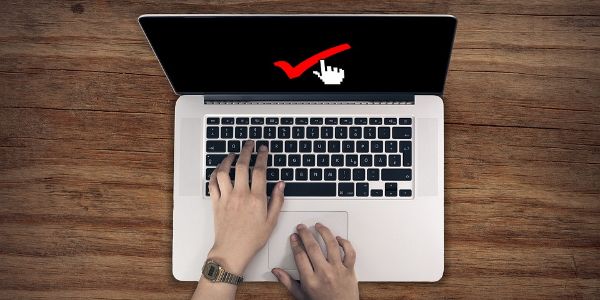
The whole purpose behind VPNs is to secure your privacy, yet the majority fail to do so. Out of the Fourteen Eyes, you must be aware of the Five Eyes more than anyone else, as they share and access the most data.
Below are some of the best VPNs outside 5 Eyes that are also the best against 9 Eyes and 14 Eyes:
- SaferVPN
- CyberGhost
- NordVPN
- ExpressVPN
- VyprVPN
- Trust.Zone
Conclusion
The majority of people around the world still believe that you don’t need to get a VPN in this day and age. But many do not realize that in today’s day and age, your privacy can easily be leaked to millions of people online.
You may think you do not need a VPN since you have done nothing wrong, whereas the Fourteen Eyes only go after criminals and terrorists. But there are several reasons why you should get a VPN to protect yourself from the Five Eyes and other third parties that should have no right over your personal data.
Don’t treat your connection to the internet like it is an open invitation for anyone to access your data. You can either choose to let companies exploit their power or take action to change that. Many companies believe they have a right over your information just because you showed a slight interest in their products.
All these concerns can be avoided and fixed by just following a few simple things. Using a VPN and other privacy tools will make you feel forever secure as you browse the internet. It does not just apply to the 5 Eyes; it also applies to cyber stalkers and hackers. So, with so many eyes worldwide, who knows who is trying to access your data? It’s better to practice caution and remain safe!
FAQs
The following nations comprise the 5, 9, and 14 Eyes intelligence alliances.
USA, UK, Australia, Canada, New Zealand
Norway, The Netherlands, Denmark, France, and the 5 Eyes countries
Belgium, Germany, Italy, Sweden, Spain, and the 9 Eyes countries.
Using essential privacy tools like a VPN, secure messaging and email apps, and anti-tracking features on your browser, you can significantly evade mass surveillance on your privacy. However, remember that no method can ever ensure 100% protection. So, make sure that you never perform any grey or illegal activities online.
Yes. If you use a robust VPN service like ExpressVPN and NordVPN, you can trust to have received thorough privacy protection. These services never log your activities or share your data with any authorities.
Images via Pixabay.
